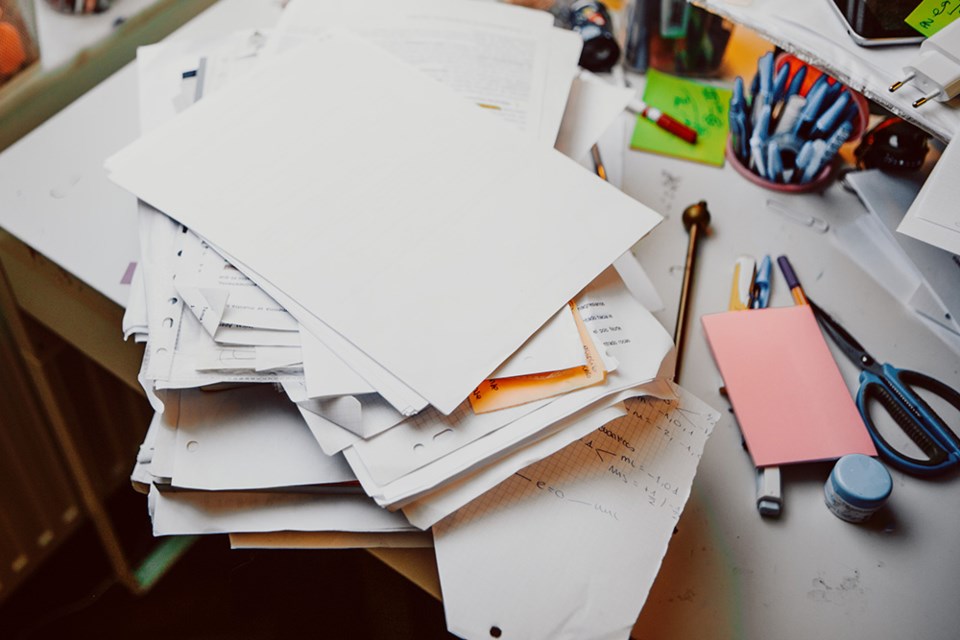Regardless of how you accumulate your paper clutter, you will get overwhelmed and tired looking at the piles.
There is no doubt that some of the paper is important to you and your family. You have to decide what’s important enough to keep and what’s not. Medical forms, financial documents, passports, birth certificates, warranties for new appliances, et cetera.
We only use 20 per cent of paper, 80 per cent of the time. Keep that in mind when you decide to attack the paper beast.
Here are 10 simple steps to reduce paper clutter before it gets out of control.
1. At the end of each day, schedule 15 minutes to sort your paperwork. Open and deal with your daily email. Sort and purge your incoming paper immediately. Designate a system for your important documents. Visit Staples for a portable filing box with a lid.
2. Because most of us don’t like to file papers, we tend to postpone it for later on. You do have five minutes to start the action. To avoid guessing, use the kitchen timer.
3. Avoid keeping your papers in grocery bags. To keep your papers safe, I prefer a box. Think before you print. Computers have not decreased the amount of paper clutter, they have increased it.
4. Instead of adding papers to your filing system, do a little bit of subtracting. Every time you file a new paper, make sure to discard one or two. Avoid keeping papers, books and magazines featuring your relatives, alive or dead. The papers are not considered of sentimental value.
5. Before you put documents into the filing box, mark them with an expiration date if they have one. Warranties for your appliances are valid for a year or two. There are some documents you do need to keep permanently, such as deeds, passports, social insurance numbers and birth certificates.
6. Assess your present magazine and newspaper subscriptions. Only continue subscriptions you read regularly. Donate old magazines to senior centres, shelters or doctors’ offices. Keep in mind that a lot of magazines are online and free.
7. Don’t save coupons unless you use them. Cutting coupons is a great way to save money, but if you don't use them, they become paper clutter. Keep them in an easily accessible location like your car, purse or wallet.
8. Many people feel the fear of letting go of their papers. Before you file anything, ask this question: Do I need to keep this paper, or can I get a duplicate, if I need it?
9. Paperwork can become overwhelming, but you do not have to tackle your piles of paperwork all at once. Attack visible paper clutter first. Seeing the immediate results will motivate you to continue. Commit to the project a little bit each day.
10. Tax filing is approaching. Start collecting the papers you need for tax purposes. If you own a business, it pays to claim any business expense you accumulate during the year. You can more likely benefit from the tax deduction.
Life coach Ranka Burzan owns a professional organizing company based in the qathet region and has written several books on reducing clutter and becoming more organized. For information, go to solutionsorganizing.com.



